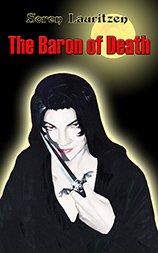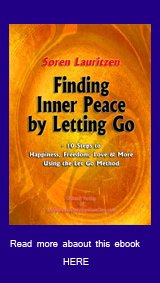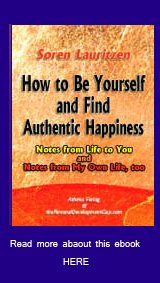C G Jung Explored the Biology and Spirituality of The Human Mind
C G Jung is one of the most well known psychiatrists in history. He is the founder of analytical psychiatry, and his work had a huge impact on his profession that continues to this day, long past his death.
Jung was a busy researcher and practicing clinician, but still had time to pursue his casual interests that included astrology, philosophy, and alchemy.
He believed that the human psyche was spiritual by nature, and used that belief to develop his treatment methods and deepen his understandings of the human mind.
Jung also had a particular interest in symbolism and dream analysis as a means towards personal development.
The Background of C G Jung
Carl Gustav Jung was born on July 26, 1875 in Switzerland. He lived to the age of 86 and died on June 6, 1961. His mother was from a wealthy family and his father was a relatively poor clergyman, and as a result, there was often tension in his family.His mother tended to isolate herself and communicate with the spirit world rather than the real world. She gave young Jung a distorted view of women that followed him into adulthood. C G Jung had other unusual experiences as a child that influenced his adult life and career. In one instance, he developed a neurosis about going to school that he overcame on his own with determination.
Jung initially studied medicine and had no intent to go into psychiatry until he happened upon a book about personality disorders and psychoses.
He realized then that psychiatry was a blend of spiritual and biological aspects of a person and he became immediately interested in perusing a career in psychiatry even though it was not an honored profession at the time. The spiritual realm heavily influenced his work.
His first work was titled, "On the Psychology and Pathology of So-Called Occult Phenomena." During the time the career of C G Jung was blossoming, psychiatry was still a very new science. He became friends with Sigmund Freud and the two influenced each other's work for a period of years, although Jung eventually came to disagree with some of Freud's theories.
The Theories of C G Jung
C G Jung based his research and treatment on a few basic principles he came to believe about individual personalities.• C G Jung was the first to explore the personality types that are known as introversion and extraversion.
• He believed in the psychological complex, which is a pattern of perceptions, emotions, and memories around a common theme that holds influence over behavior and thoughts.
• C G Jung believed in the collective unconscious, and felt it is shared by all people. This included the belief in archetypes. C G Jung felt he had such an experience as a child when he performed ceremonies on a carving he made without fully understanding why he did it.
• Jung also believed in the power of synchronicity and expanded upon this belief with the help of physicists. He worked with notable theoretical physicist Wolfgang Pauli on ideas such as non-locality and unified reality.
• C G Jung also developed various personality types for categorizing people and behaviors. Modern assessments such as the Myers-Briggs Type Indicator test are based on Jung's work.
• C G Jung thought that spirituality was essential to a person's well-being. He theorized a person's driving purpose was to know himself and therefore know the divine.
Books by C G Jung
• "The Red Book," also called "Liber Novus," was handwritten by C G Jung between the years 1914 and 1930. About two thirds of the book contains illuminations by Jung and the remaining third holds an account of the hallucinations and mystical experiences he had during that time. Jung felt he might be having psychotic episodes, or schizophrenia. He realized it could be valuable to the psychiatric community if he could chronicle his experiences as they happened. He went so far as to induce hallucinations to enhance the mystical aspect of the events. The book was not published in his lifetime, and after his death, his family kept it locked away for several years, refusing to make it public. Finally, in 1990, his heirs decided to publish the book.• "Man and his Symbols" was published in 1964 and is one of the personal development books written by C G Jung for the layperson. In this book, he explains his theory about dreams and symbolism.
• "Answer to Job" was published in 1958 and it explores the mythological, moral, and psychological aspects of the "Book of Job" from the Bible. In this controversial work, C G Jung considers God as a quaternity rather than a trinity, the fourth aspect being an evil side.
• "The Collected Works of C G Jung" contains the most important writings of Jung. Included are the notable works "Symbols of Transformation," "Psychological Types," "Psychiatric Studies," "Freud and Psychoanalysis," "The Archetypes of the Collective Unconscious," "Psychology and Religion: West and East," "Psychology and Alchemy," and "The Development of Personality." There are 20 volumes in this collection of important writings that give an in-depth view into the theories and practices of C G Jung.
• "Modern Man in Search of Soul" offers readers an broad overview of the teachings of C G Jung as they relate to the spiritual side of human beings. Jung discuses primitive unconscious, religion, and dream analysis. He also uses this platform to give an account of how his beliefs differ from those of Freud.
• "Memories, Dreams, Reflections" was written by C G Jung when he was in his eighties. It is a first hand account of his life story and the theories about the personality and spirituality as he came to believe them. Jung worked on this book up until shortly before his death.
The Legacy of C G Jung
C G Jung was a prolific writer of essays, articles, and personal development books. Many of his books were targeted towards fellow psychiatrists in an attempt to teach his beliefs and methods of treatment. Other works were intended for the layperson who was seeking deeper meaning and answers about life. Many of his lectures and talks have also been written as essays and published.C G Jung was one of the most influential psychiatrists in history and his effect is still felt today. He kept one foot firmly planted in science while he explored the spiritual nature of mankind and as a result his theories about human personalities are holistic, and useful for self help enthusiasts as well as those in need of psychological treatments.
The Personal Development Guy's Self Improvement Ezine (FREE)
Would you like to keep in touch - and get high-level tips and special bonuses? Then please sign up for my self improvement newsletter The Personal Development Guy's Self Improvement Ezine. It is totally FREE.
I LOVE Your Support
If you've found the free personal development content on this website useful, please click the Donate button. Your donation will help me to keep producing free, high-level self improvement information. I am VERY GRATEFUL for your support!
Inspirational Quotes, Poems and Funny Short Stuff
If you want, you can also get your personal development, spirituality and general wisdom in an ultra light version - or even add your own wisdom to the site. Just go to the other sister of this website at:
- World's Best and YOUR Best Quotes, Poems and Short Funny Stuff
Quotescoop.com is also known as:
(http://www.inspirational-quotes-short-funny-stuff.com).
High-Level Positive Parenting Advice and Deep Insights
Positive Parenting Ally is the parenting equivalent of the Personal Development Guy. This is where you go if you want really deepen your understanding of parenting, empower your kids and make everyday life more easy and joyful.
Positive-Parenting-Ally.com
- Parenting advice for the conscious, open-minded parent!
Back to the top of this page about C G Jung Explored the Biology and Spirituality of The Human Mind
Where Would You Like to Go Next?
To see what has been added to this site recently (plus offers, etc.), check out Blog & News at thePersonalDevelopmentGuy.comTo share your own short self improvement ideas, tips, musings, quotes, stories, spiritual jokes, etc. (and read the short ideas, etc. others have shared) jump to Shared Blog: Self Improvement Ideas
Jump to the Personal Development Guy Homepage
Jump to Self Help Books.
List of articles about self help books listed alphabetically: Alfred Adler, Barbara De Angelis, Maya Angelou Biography, Arjuna Ardagh, Richard Bandler, Brandon Bays, Alain de Botton, Gregg Braden, Brene Brown, Les Brown, Leo Buscaglia, Tony Buzan, Andrew Carnegie Biography, Carlos Castaneda, Pema Chodron, Deepak Chopra, Deepak Chopra Books Paulo Coelho, Stephen Covey, Peter Drucker, T. Harv Eker, Masary Emoto, Timothy Ferriss, Debbie Ford, Viktor Frankl, Mahatma Gandhi, Gangaji, Shakti Gawain, Kahlil Gibran, Daniel Goleman, Amit Goswami, Alex Grey, Stanislav Grof, David Hawkins, Louise Hay, Hermann Hesse, Esther Hicks and Jerry Hicks, Napoleon Hill, Susan Jeffers, C G Jung, Jon Kabat-Zinn, Byron Katie, Robert Kiyosaki, Bruce Lipton, Ramana Maharshi, J W Marriott, Abraham Maslow, John Maxwell, Drunvalo Melchizedek, Anthony de Mello, Anthony De Mello Quotes, Dan Millman, Bruce Moen, Robert Monroe, Michael Newton, Daniel Pink, Dave Ramsey, Ayn Rand Books, James Redfield, Cheryl Richardson, Anthony Robbins, Anthony Robbins Books Carl Rogers, Jim Rohn, Marshall Rosenberg, Geneen Roth, Don Miguel Ruiz, Robin Sharma, Barbara Sher, George Soros Biography, George Soros Quotes, Eckhart Tolle, Brian Tracy Books, Neale Donald Walsch, , Joe Vitale, Lyall Watson, Alan Watts, Stuart Wilde, Marianne Williamson, Larry Winget, Gary Zukav, Best Self Help Books, Self Help Books for Women,







